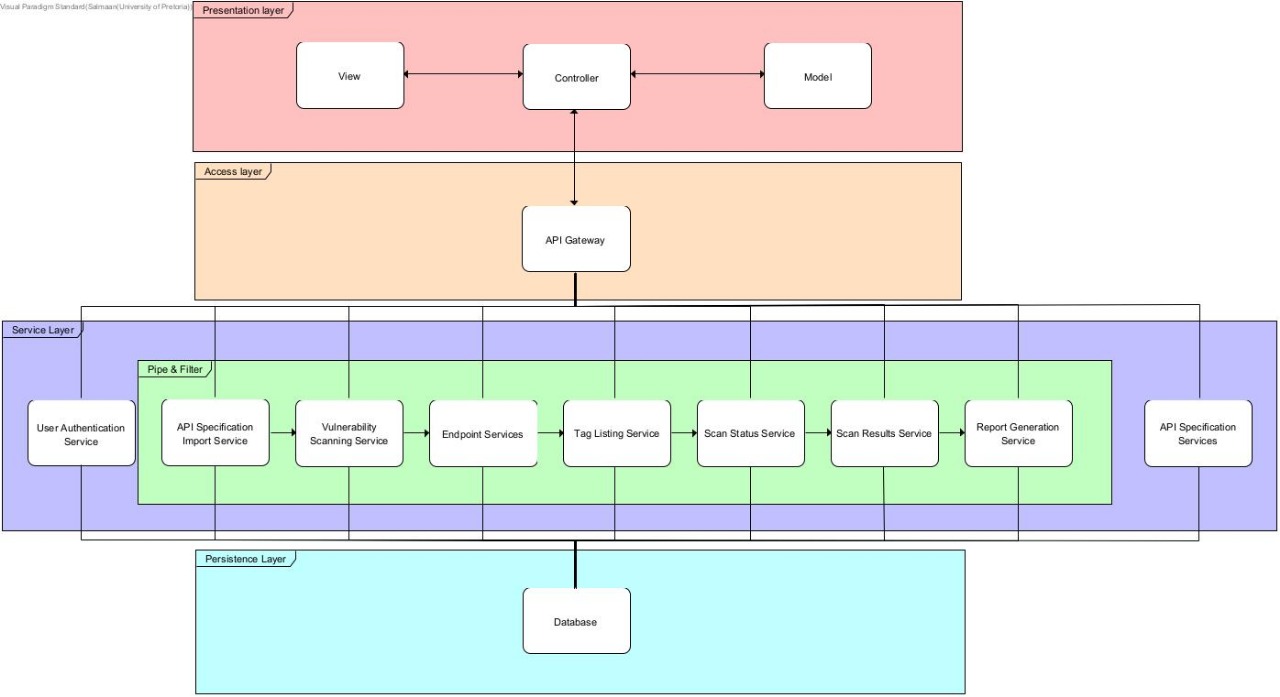Software Architecture
System Architecture Overview
Section titled “System Architecture Overview”The AT-AT system adopts a microservices-inspired modular architecture designed to support independent development, scalability, and maintainability. The system consists of clearly separated logical components, each responsible for a specific function.
Diagram
Section titled “Diagram”
Layers
Section titled “Layers”1. Presentation Layer (Frontend)
Section titled “1. Presentation Layer (Frontend)”- Built with React.js.
- Responsible for rendering the user interface.
- Sends requests to the API for scans, report generation, and user authentication.
2. API Layer (JS Express API)
Section titled “2. API Layer (JS Express API)”- Acts as a middleware between frontend and backend processing.
- Performs user session validation, RESTful request parsing, and dispatches tasks to Python backend.
3. Processing Layer (Python Backend)
Section titled “3. Processing Layer (Python Backend)”- Executes scanning logic, report generation, and vulnerability detection.
- Communicates with the API layer through internal HTTP calls.
- Reads environment variables for secure credentials.
Architectural Justification
Section titled “Architectural Justification”The separation into distinct layers follows microservices principles to support:
- Scalability: Each component (Frontend, API, Backend) can be deployed or scaled separately.
- Maintainability: Isolated codebases reduce complexity when updating or testing.
- Fault Isolation: Issues in one layer (e.g., backend processing) do not bring down the UI or authentication.
Note: No direct communication occurs between the frontend and the backend processor — all traffic is routed through the API layer.
Non-Technical Notes
Section titled “Non-Technical Notes”- This architecture is technology-independent in concept.
- It may be deployed to Docker, virtual machines, or dedicated servers, without altering the structural design.
- Quality Attributes (QAs) such as performance, modularity, and reliability are enhanced by this separation of concerns.